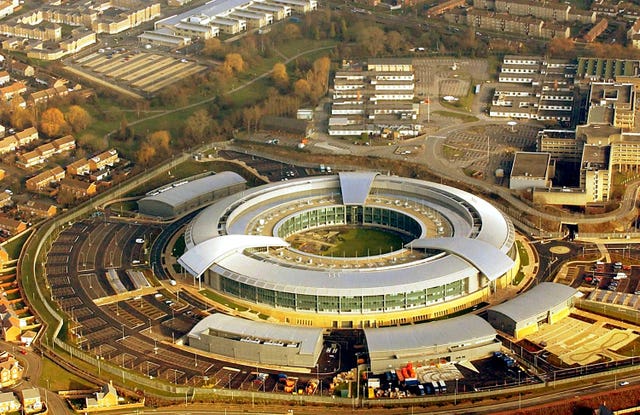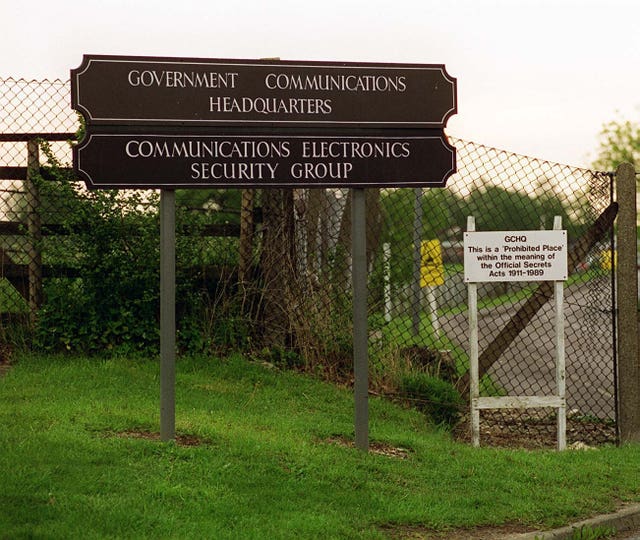Magic of GCHQ is ‘ordinary people who work there’, historian says
Tony Comer said his discoveries about the efforts staff went to to protect the nation demonstrate their brilliance.

As he delves into the GCHQ archives, not a day goes by without Tony Comer discovering snippets of information he can piece together to learn something fascinating about the history of the spy agency.
Having worked for the intelligence service for 36 years, a decade ago he became its historian based in Cheltenham.
He said he never fails to be impressed as he discovers more about what “ordinary people” did to protect their country, demonstrating brilliance in their work at GCHQ.
Speaking to the PA news agency as the service celebrates its 100th year, Mr Comer said: “It’s incredible that (the agency is formed) from just ordinary people going about their business.

“We released a massive amount of information to the National Archives between 1994 and 2004 – literally millions of documents about the Second World War.
“But rarely a week goes by without the chance of turning up something that you didn’t know about before.
“A common thread is that GCHQ is filled by ordinary people who find it’s an area they can put their mark.
“It could be small or trivial but it could point to the sort of people who have worked at GCHQ over the years.”
He described the agency as providing a “unique service” to Government, adding: “Without this intelligence, at best, our Government would only have half-sight to the threats to this nation’s security.”
He said the targets may have changed over the years – with its work now very different from trying to tackle the Nazis in the Second World War – but “the fundamental issues that we face really have just carried on throughout the period”.
For Mr Comer, three key examples in GCHQ’s history are intercepting the Zimmermann telegram in 1917, breaking the Enigma code in the Second World War and also contributing to efforts in the Cuban missile crisis.
But he said tactical intelligence on D-Day was a “monumental piece of work” which also helped the war effort. By intercepting messages sent to Hitler, the British leaders could be kept informed of what the German army thought the Allied troops were doing and where they were advancing.

Mr Comer finds, as GCHQ moves towards being more open and public in its work, there are still myths about how it operates.
“The most common misconception is that we listen to every single telephone call in the world and we read every email.
“It’s surprising how many people don’t stop to think it would be inconceivable to do that.
“We would be completely snowed under by material that was not important.
“The Government states our priorities.
“The idea that we are a bunch of cowboys is quite depressing.
“With all the secret intelligence services people like to fill a void.
“You can watch James Bond and can imagine people spend all their time at MI6 in dinner jackets.
“GCHQ is quite technological and mathematical.”





